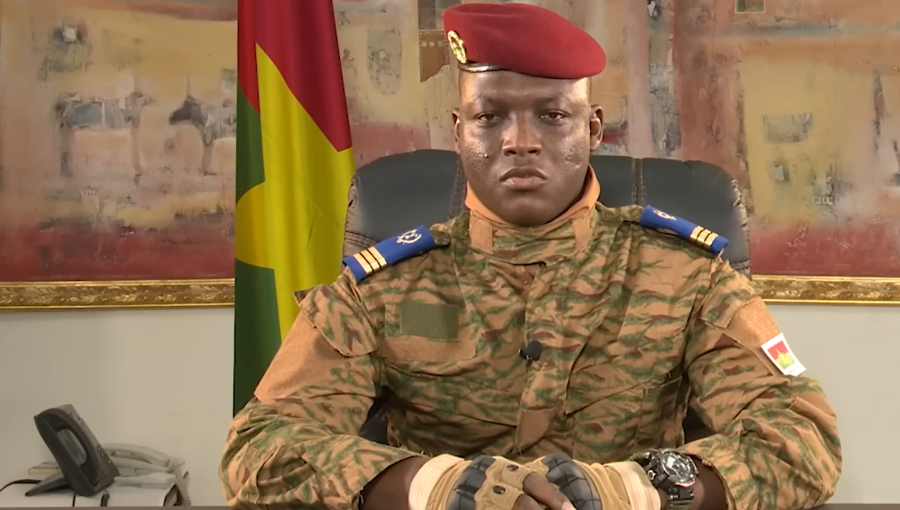
By Olakunle Agboola – Nestled in the heart of West Africa, Burkina Faso is a land of rich cultural heritage, vibrant traditions, and resilient people. The journey towards independence began in 1960 when it liberated itself from French colonial rule. Since then, the country has made significant strides in nation-building, establishing democratic institutions, and fostering a sense of national identity. However, the path to progress has not been without its obstacles, most especially the shackles of French Imperialism.
French influence after independence
One of the most enduring aspects of French influence in Burkina Faso post-independence is economic exploitation. Despite gaining sovereignty, Burkina Faso remained ensnared in neocolonial economic structures, with France exerting significant control over key sectors such as mining and agriculture. Exploitative trade agreements and unequal economic partnerships continued to benefit French interests at the expense of Burkina Faso’s economic autonomy and development.
French influence in Burkina Faso extended beyond the economic realm, with political interventions shaping the country’s governance and stability. France maintained close ties with successive Burkinabé governments, often supporting regimes that aligned with its strategic interests while disregarding democratic principles and human rights. This interference undermined Burkina Faso’s sovereignty and perpetuated a cycle of political instability.
Cultural influence has been another dimension through which French presence persisted in Burkina Faso. The imposition of the French language, education system, and cultural norms continued to shape Burkinabé society, perpetuating a legacy of dependency and cultural hegemony. Despite efforts to promote indigenous languages and cultural heritage, French cultural dominance remained pervasive, reinforcing power imbalances, and eroding local identities.
A Quest for Sovereignty
Economic independence is central to Burkina Faso’s struggle against French imperialism. The country has implemented policies to promote domestic industries, reduce dependency on foreign aid, and foster self-sufficiency. Initiatives such as agrarian reforms, investment in infrastructure, and support for local entrepreneurs aim to strengthen Burkina Faso’s economy. Also to mitigate the effects of exploitative economic relationships with France.
Cultural resurgence serves as a potent form of resistance against French cultural hegemony. Burkina Faso has actively promoted indigenous languages, traditions, and artistic expressions, reclaiming its cultural identity and challenging external influences. Cultural events, such as film festivals and music celebrations, have become platforms for asserting national pride and solidarity, fostering a sense of unity and resilience in the face of imperialism.
Education plays a vital role in Burkina Faso’s fight against imperialism. The country has prioritized educational initiatives aimed at raising awareness about its history, colonial legacy, and the ongoing struggle for sovereignty. Empowering the citizens with knowledge and critical thinking skills, Burkina Faso cultivates a more informed and engaged populace capable of resisting external pressures and asserting their rights.
Burkina Faso’s steadfast resistance
Burkina Faso has emerged as a vocal critic of France’s historical and ongoing imperialist practices in Africa. The military head, Ibrahim Traore has continued to challenge neo-colonialism and France’s imperialism. Despite facing pressure and opposition from powerful external actors, he has remained steadfast in his commitment to challenging France’s imperialist legacy and asserting its sovereignty. Ibrahim Traore’s leadership reflects the aspirations of the Burkinabe people for a future free from the shackles of neo-colonialism, where they can determine their destiny and realize their full potential as a proud and independent nation in the heart of Africa.
Burkina Faso continues to navigate the complexities of global politics and confront the legacies of colonialism, its resistance against French imperialism serves as a beacon of hope for oppressed peoples everywhere striving to break free from the chains of exploitation and domination. Mali and Niger in recent times have joined Burkina Faso to be the shining light of Africa through unity, resilience, and unwavering determination to chart a new course toward a future of dignity, justice, and self-determination.
This steadfast resistance against French imperialism reflects a broader shift in African consciousness towards reclaiming sovereignty and autonomy. Through diplomatic assertiveness, economic empowerment, cultural revival, and educational empowerment, Burkina Faso, Mali, and Niger Republic continue to challenge the status quo of Françafrique to pave the way for a more equitable and independent Africa. While the journey towards true liberation is ongoing, these three countries offer hope and inspiration for a continent striving to break free from the shackles of colonialism and imperialism.









